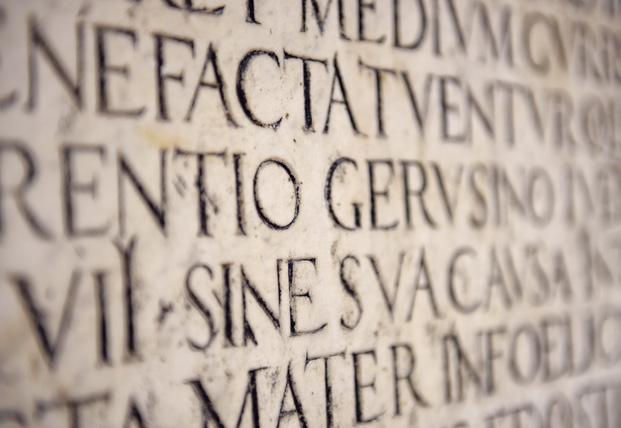
6 minute read
Geography
Mrs R Turner Head of Geography rosemarie.turner@ditchampark.com
y child is known and valued M PARK SCHOOL
Examination Board AQA
Where ever y child is kn DITCHAM
Why study Geography?
Geography is, in the broadest sense, an education for life and for living. Learning through geography, (whether gained through formal learning in lessons or experientially through fieldwork) helps us all to be more socially and environmentally sensitive, better informed, and more responsible citizens.
Geography is unique because it bridges the humanities and sciences. Geography recognises the great differences in cultures, political systems, economies, landscapes and environments across the world, and explores the links and inequalities between them.
It is not surprising that those trained as geographers are present in every workplace because of the broad range of skills involved in understanding the world. For example: data collection, statistical analysis, report writing, essay writing, creative data presentation and cartography.
What will I learn?
Geography Course Content
This exciting and relevant course studies geography in a balanced framework of physical and human themes and investigates the link between them.

Students will travel the world from their classroom, exploring case study examples. Students are encouraged to understand their role in society, by considering different viewpoints, values and attitudes.
Unit 1 - Living with the Physical Environment
Topics:
• The challenge of Natural Hazards
• The Living World
• Physical Landscapes in the UK
• Geographical Skills
Unit 2 - Challenges in the Human Environment
Topics:
• Urban Issues and Challenges
• The Changing Economic World
• The Challenge of Resource Management
• Geographical Skills
Unit 3 - Geographical Applications
Topics:
• Issue Evaluation
• Fieldwork
• Geographical Skills
Examination and Assessment
The course is linear, which means all three examinations will be sat at the end of the course. There is one tier of entry.
• Unit 1 (1 hour 30 mins) - 35%
Living with the Physical Environment
• Unit 2 (1 hour 30 mins) - 35%
Challenges in the Human Environment
• Unit 3 (1 hour 15 mins) - 30%
Geographical Applications
Mr G Harris Head of History george.harris@ditchampark.com
y child is known and valued M PARK SCHOOL
Examination Board AQA (8145)
Where ever y child is kn DITCHAM PA
Why study History?
Learning about history enables you to understand society today.
Understanding about events and people that shaped who we are is important.
History gives us the opportunity to see how daily life has changed over the years, and what goes into fostering that change.
Knowing what events led up to historically significant situations helps us better predict and influence our own future.
By studying history, you will have a better understanding of the world and what shaped it into the world it is today. You will understand the suffering, joy, and chaos that were necessary for the present day to happen.
What will I learn?
History Course Content
Paper 1: Understanding the modern world
Section A: Period study
• Germany, 1890-1945: Democracy and dictatorship

Section B: Wider world depth study
• Conflict and tension in Asia, 1950-1975
Paper 2: Shaping the Nation
Section A: Thematic study
• Britain; Power and the People c1170 to the present
Section B: British depth study including The historic environment
• Elizabethan England, c1568-1603
Examination and Assessment
The course is linear, which means all examinations will be sat at the end of the course.
The course will be assessed by the way of two 2 hour examinations.
• Paper1: Understanding the modern world
• Paper 2 : Shaping the Nation
Each assessment is worth 50% of the overall final grade.
Ms O Bicknell Head of Latin Olivia.bicknell@ditchampark.com
M PARK SCHOOL
Examination Board Eduqas y child is known and valued
Why study Latin?
DITCHAM PA
Where ever y child is kn
• Latin GCSE is both stimulating and interesting as it allows you a chance to delve into the exciting world of mythology and fascinating storytellers.
• It will be useful in many careers and will look great on your university application! Latin is much valued by universities and employers because of the discipline and attention to detail that learning the language requires.
• This is a highly regarded qualification due to the questioning and problem-solving abilities gained by its students, and its skillset complements and helps with many other GCSE subjects, especially English Literature and History.
• You will be introduced to vocabulary and grammar that will help you to understand how English has developed. It’s also a fantastic choice to complement study of a Modern Foreign Language. The precision and linguistic skills required will really help you in all your other subjects.
• Latin is very good for your thinking skills: it is a very logical language that can be deciphered like a code, solved like a puzzle.

• You will have opportunities to study first-hand accounts of battles, entertainment, and traditional customs in Ancient Rome. You will use your own knowledge to contrast Ancient issues surrounding economics, politics and religion - with the modern day.
What will I learn?
Latin Course Content
• Latin Language – you will increase your Latin vocabulary and learn how Latin sentences are constructed so that you can translate stories from Roman myth and history into English. You may also begin to write your own simple sentences in Latin. There is no requirement to speak the language just to read and understand it.
• Latin Literature and Sources – You will be introduced to various Latin authors and other sources (art, sculpture, artefacts) and learn about life in Rome from the Romans themselves. The topic for GCSE 2024 is ‘Love and Marriage’, where we will read first hand accounts written between friends and lovers while finding out about attitudes towards women at the time. Past topics have included ‘A Day at the Races’, ‘Magic and Superstition’ and ‘Travel by Land and Sea’.
• Roman Civilisation – This unit is taught and examined entirely in English. We explore various aspects of Roman life, analysing and evaluating the evidence that the Romans have left behind –ruins, art, artefacts, and texts. The current topic is Roman Family Life: Gender Roles in Ancient Rome, the life of Children and their Educational ventures, Slavery and Freedom, Marriage/ Divorce and rituals and superstitions surrounding Death and Burials. GCSE trips to support this unit in Forms 3 and 4 in the past have included Fishbourne Roman Palace and Bath (Aquae Sulis).
Examination and Assessment
The course is linear, which means all examinations take place at the end of the course.
The course will be examined by way of three exams.
• Latin Language (50%) – 1 hour 30 minutes
• Latin Literature (30%) – 1 hour 15 minutes
• Roman Civilisation (20%) – 1 hour
Mr E Williamson Head of Music
ed.williamson@ditchampark.com
y child is known and valued
Why study Music?
“Without Music, life would be a mistake.”
Friedrick Nietzsche
The Edexcel GCSE Music qualification is designed to inspire pupils to form personal and meaningful relationships with music through the development of musical knowledge, understanding and skills. Pupils will be encouraged to engage critically and creatively with a wide range of music, develop an understanding of the place of music in different cultures and contexts, and reflect on how music is used in the expression of personal and collective identities.
What will I learn?
Music Course Content
There are THREE components: PERFORMING, COMPOSING and APRRAISING through the study of music across a variety of styles and genres. The content is grouped into four areas of study, each of which contains two set works; reflect on, analyse and evaluate music in aural and/or written form; develop knowledge and understanding of musical elements, musical contexts and musical language to make critical judgements about the repertoire and context of music within the areas of study and the 8 set works; develop a wider listening of pieces for each area of study which will help students relate their learning to other pieces of music.
• Develop performing skills in both a solo and ensemble context; develop creative thinking, aesthetic sensitivity, critical awareness, selfconfidence, self-motivation and their own musical interests and skills; to perform with control, using phrasing and dynamics appropriate to their chosen styles and moods of music.
• Learn skills in composing music and to appreciate the process of creating music; to explore a range of compositional starting points and investigate a range of elements, techniques and resources for developing and manipulating ideas, and turning them into completed pieces of music.
Examination and Assessment
ONE externally examined paper and TWO non-examined assessments (NEA)
Component 1: PERFORMING:
30% of qualification; NEA; internally marked and externally moderated; TWO performances: 30 marks each; total: 60 marks
Component 2: COMPOSING:
30% of qualification; NEA; internally marked and externally moderated; TWO compositions: 30 marks each; total: 60 marks
Component 3: APPRAISING:
40% of qualification; Written Examination: 1 hour and 45 minutes; Total: 80 marks
Written Examination in TWO sections:
Section A: Areas of Study, dictation, unfamiliar pieces (68 marks);
Section B: Extended response comparison between a set work and one unfamiliar piece (12 marks)
• Develop one’s listening and appraising skills







